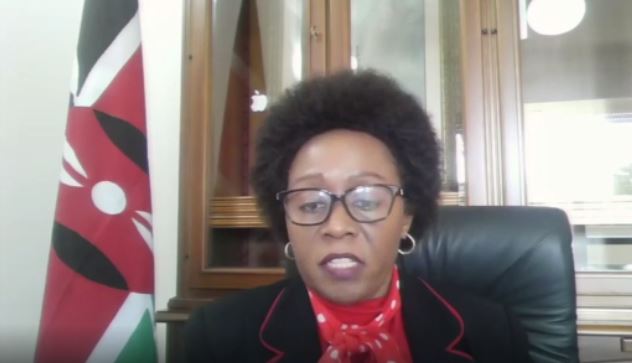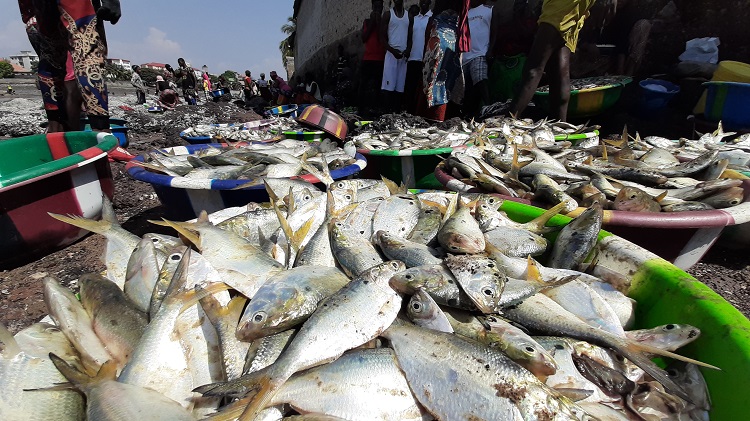On the occasion of the 34th session of COFI 2021, the Ambassador and Permanent Representative of the Republic of Kenya, the President of the African regional group in Romes, spoke on the situation of fisheries and aquaculture on the continent. On 1 February 2021, Mrs. Jackline YONGA welcomed the publication of the SOFIA 2020 Report, stating that Africa is “aware” of the main trends in fisheries and aquaculture.
 She congratulated FAO on the progress made, the trends observed in new challenges and innovative interventions for improvement in African fisheries and aquaculture. The Kenyan also appreciated the role of FAO in gathering information on the state of Africa’s aquatic resources and providing data on the state of world fisheries and aquaculture.
She congratulated FAO on the progress made, the trends observed in new challenges and innovative interventions for improvement in African fisheries and aquaculture. The Kenyan also appreciated the role of FAO in gathering information on the state of Africa’s aquatic resources and providing data on the state of world fisheries and aquaculture.
Furthermore, taking note the context change in the global economy and the challenges and opportunities that African countries face in developing their fisheries and aquaculture resources, Ms Yonga said: “We note with concern the global trend towards a decline in the proportion of capture fish stocks that are at biologically sustainable levels. The indicator has declined from 90% of stocks in 1974 to 65.8% in 2017”.
She said African countries are also concerned about the clear trend of increasing percentages of stocks being exploited at biologically unsustainable levels. “In this regard, the indicator has risen from 10% in 1974 to 34.2% in 2017,” Yonga said.
In addition, in relation to the supply of fish as a food source, the regional group notes that it was expected to increase in all regions while per capita consumption in Africa was expected to decline. “This raises food security concerns,” it points out.
Small-scale fisheries, vital for global economic and social growth
Stressing the importance of the sector in people’s lives, the Indonesian Ambassador in Rome believes that it is essential to change the fisheries sector to create more opportunities and to do everything possible to ensure that measures are in line with the population’s need for prosperity while maintaining a healthy ocean environment.
Nona Gae Luna says the artisanal fisheries sector plays a major role in sustaining economic and social growth, especially in coastal communities. Therefore, she said, it is vital to provide the necessary assistance to small-scale fishers so that they can work in a sustainable way. “Small-scale fishers face many difficulties in marketing their products due to market access and technical barriers to trade. Indonesia stresses that it is essential to ensure trade in fisheries sector as a win-win mechanism and not as a zero-sum game,” said Luna.
The Ambassador calls on FAO to assist developing countries and small-scale fisheries operators to develop the aquaculture sector. Ms. Luna recommended that international markets give sufficient space to flexible small-scale fisheries products.
Given the increasing difficulties of pandemic COVID-19 in the fisheries sector, Ms. Luna believes there is a need to share best practices and implement innovative breakthrough solutions.
Mamadou Aliou Diallo


